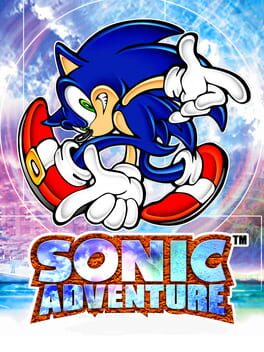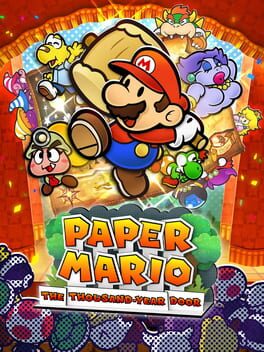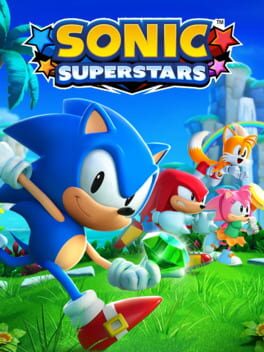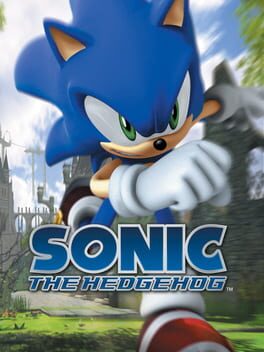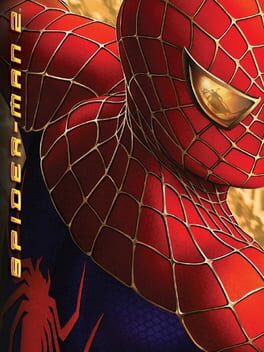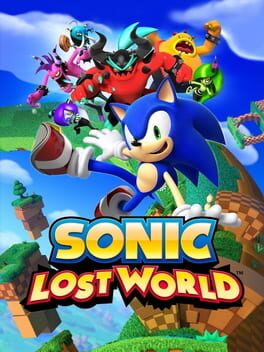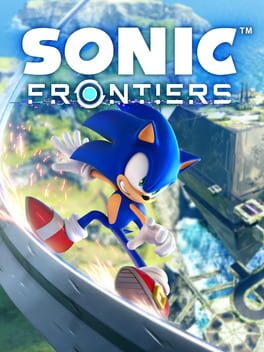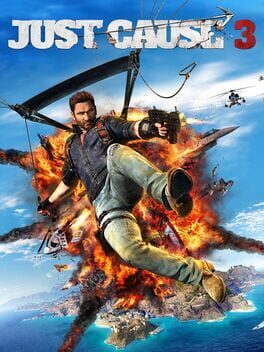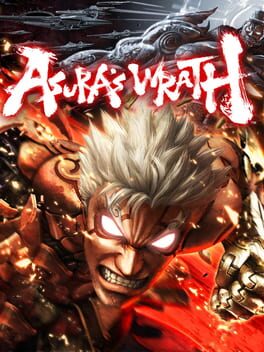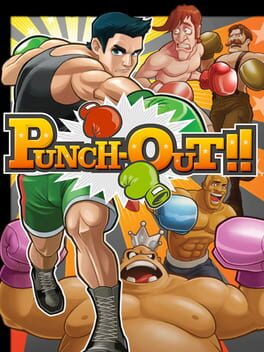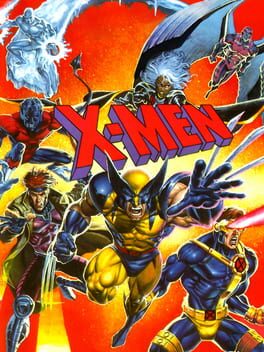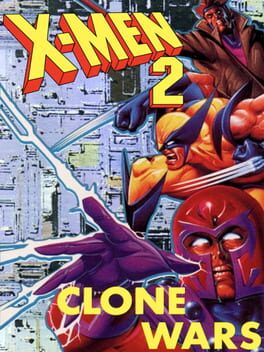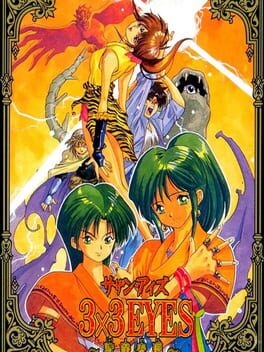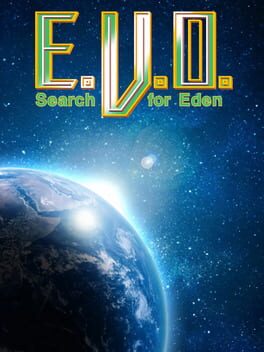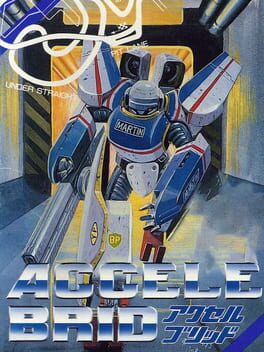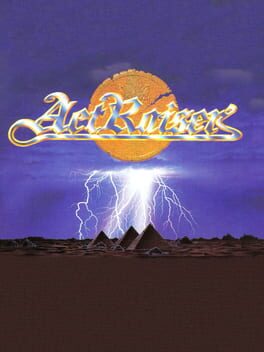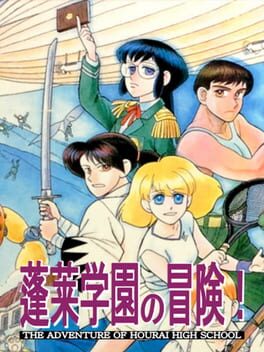Nightly
12 reviews liked by Nightly
Sonic Adventure
1998
so many reviews of this game have people saying "oh it sucks but i love it" or "it's obviously not GOOD but it's good" which is The Coward's Copout. I have no respect for this line of hedging your bets for fans and people who hate it, especially since Sonic Adventure is good.
I am bold enough to say that Sonic Adventure IS a good game. It's creative, made with love and passion, and actually makes good on the no doubt stressful task of translating Sonic into 3D. Of course not everything is going to work, Sonic Team were just fucking nuts, and I have way more respect for a game that shoots for the sun than something that is just another product.
So enough with this "The game is bad but I like it" bullshit. I think for having no other template to work off of, the amount Sonic Team gets right here for technology of the 90s, is genuinely impressive and shouldn't be given backhanded compliments. Sonic Adventure deserves either your love or hate, not some shit in-between.
I am bold enough to say that Sonic Adventure IS a good game. It's creative, made with love and passion, and actually makes good on the no doubt stressful task of translating Sonic into 3D. Of course not everything is going to work, Sonic Team were just fucking nuts, and I have way more respect for a game that shoots for the sun than something that is just another product.
So enough with this "The game is bad but I like it" bullshit. I think for having no other template to work off of, the amount Sonic Team gets right here for technology of the 90s, is genuinely impressive and shouldn't be given backhanded compliments. Sonic Adventure deserves either your love or hate, not some shit in-between.
Sonic Adventure
1998
Great game still, and some nice QoL was added in addition to some other cool bonus content. But I think this game's reputation was very heavily carried by style/dialogue. Compared to the N64 Paper Mario, this game added some well-appreciated additional complexity to combat and added to your suite of abilities for exploration in some logical ways. But the game has a real issue about being a corridor-based fetch quest simulator. While it still exists, the area-and-dungeon-exploration-based gameplay of the first game takes a major backseat here in favor of gameplay that pretty transparently boils down to "talk to this person, walk 3 screens to left, talk to person there, walk 3 screens to the right."
The writing's still amazing which is why everyone who played this when it first came out was so willing to overlook its flaws compared to the first game, and while it's aged pretty well, replaying the game as an adult (and with a remake that actually has slower text that you are deliberately not able to mash through until you've already seen it once) makes it pretty clear how heavy this game is on just walking down corridors to complete fetch quests. Still a great game, but do yourself a favor and don't go in expecting this to be the greatest game of all time like Paper Mario fans have probably tried to tell you it is for the last 20 years.
...and if you want to play a Paper Mario that actually is the greatest game of all time, play the N64 game instead.
The writing's still amazing which is why everyone who played this when it first came out was so willing to overlook its flaws compared to the first game, and while it's aged pretty well, replaying the game as an adult (and with a remake that actually has slower text that you are deliberately not able to mash through until you've already seen it once) makes it pretty clear how heavy this game is on just walking down corridors to complete fetch quests. Still a great game, but do yourself a favor and don't go in expecting this to be the greatest game of all time like Paper Mario fans have probably tried to tell you it is for the last 20 years.
...and if you want to play a Paper Mario that actually is the greatest game of all time, play the N64 game instead.
Sonic Superstars
2023
This review contains spoilers
This game is great, no joke, i really enjoyed it and i think the main campaign is up there with the best Classic Sonic games, you got great level design, (mostly) great music, and five characters plus seven different powers, making it GREAT on replays.
The thing is, I feel like most people who played this suffer from recency bias.
After the main campaign you unlock a hard as hell (and honestly, at points really cheap) campaign with Trip, which can be at least numbed a bit by collecting the seven Emeralds in the main campaign and just avoiding all the cheap level design using Trip's Super Form. and then you get the Final Story, which isn't bad but it's quite long for a super sonic fight and a bit difficult to figure out (the trick is to avoid getting hit by the attacks, if you manage to at least consistently dodge most attacks, one of the other characters will show up to drop extra rings and give you more time, if you dodge all the attacks then Amy and Trip will show up to give you about 4 ring boxes), and then there's the co-op, which was never gonna be good. because unless they make it split screen (which honestly would feel like a nightmare), you cant have co-op work on a sonic game.
But that's the thing, all of those are things you're just gonna play once, you just need to beat Trip's campaign once, you just need to beat final story once, and you're probably just gonna do one run of the co-op to see how it is, if not just one session, every other time you replay this game, you'll play the main campaign, which is some of the best 2D Sonic this series has ever produced. This game is really good, but the problem is that it's surrounded by one-off stuff that left a lasting impression on people and replaced any goodwill the main campaign may have created. It's not a BAD game, people saying that clearly have never played an actual bad game in their lives, heck i wouldn't even say its an AVERAGE game.
Honestly if you beat the whole thing and feel negative about it because of the Trip campaign and Final Story, I'm begging you, do yourself a favor and replay the main campaign
play with the characters you want, explore the stages, use the Emerald powers, have FUN, remind yourself of the fun you were having in the main campaign, and see how now that the cheap stuff is over, you'll never have to replay that, you can just boot up the main campaign on replays and have a blast.
I said it before and I'll say this again, this IS NOT a bad game, it's no Sonic Mania but it's also no Sonic 4.
The thing is, I feel like most people who played this suffer from recency bias.
After the main campaign you unlock a hard as hell (and honestly, at points really cheap) campaign with Trip, which can be at least numbed a bit by collecting the seven Emeralds in the main campaign and just avoiding all the cheap level design using Trip's Super Form. and then you get the Final Story, which isn't bad but it's quite long for a super sonic fight and a bit difficult to figure out (the trick is to avoid getting hit by the attacks, if you manage to at least consistently dodge most attacks, one of the other characters will show up to drop extra rings and give you more time, if you dodge all the attacks then Amy and Trip will show up to give you about 4 ring boxes), and then there's the co-op, which was never gonna be good. because unless they make it split screen (which honestly would feel like a nightmare), you cant have co-op work on a sonic game.
But that's the thing, all of those are things you're just gonna play once, you just need to beat Trip's campaign once, you just need to beat final story once, and you're probably just gonna do one run of the co-op to see how it is, if not just one session, every other time you replay this game, you'll play the main campaign, which is some of the best 2D Sonic this series has ever produced. This game is really good, but the problem is that it's surrounded by one-off stuff that left a lasting impression on people and replaced any goodwill the main campaign may have created. It's not a BAD game, people saying that clearly have never played an actual bad game in their lives, heck i wouldn't even say its an AVERAGE game.
Honestly if you beat the whole thing and feel negative about it because of the Trip campaign and Final Story, I'm begging you, do yourself a favor and replay the main campaign
play with the characters you want, explore the stages, use the Emerald powers, have FUN, remind yourself of the fun you were having in the main campaign, and see how now that the cheap stuff is over, you'll never have to replay that, you can just boot up the main campaign on replays and have a blast.
I said it before and I'll say this again, this IS NOT a bad game, it's no Sonic Mania but it's also no Sonic 4.
Sonic the Hedgehog
2006
Big surprise, The Thousand-Year Door is delightful. The battle system is surprisingly engaging due to its timed hits (even more so this time with the addition of "stylish" moves), the dynamic and malleable badge system, and the wacky diversity of its enemies and bosses. The half-diorama/half-theatre aesthetic of its world is wonderful (not to mention graphically this is a HUMUNGOUS glow-up from the Gamecube original, like damn). The various stories, characters and locales of each chapter are witty, memorable and captivating. It's easy to see why this game is so beloved and to end up loving it yourself.
All that said, I don't think that The Thousand-Year Door is some incredible jump in quality from the first game. If anything, I think the first Paper Mario impressed me way more. Where this game really leans into its dark setting and wacky presentation, the original had more whimsy that resonated with me on a deeper level. Don't get me wrong, despite my lack of personal exposure to the rest of the series, I've totally drank the Kool-Aid and am happy that this is a game that Nintendo acknowledges and rereleased; hopefully the future is bright for OG Paper Mario fans. I just don't think it's this mind-blowingly amazing experience. I just think it's genuinely great, alongside its predecessor, and this is a duology of RPGs that are easily worth your time.
All that said, I don't think that The Thousand-Year Door is some incredible jump in quality from the first game. If anything, I think the first Paper Mario impressed me way more. Where this game really leans into its dark setting and wacky presentation, the original had more whimsy that resonated with me on a deeper level. Don't get me wrong, despite my lack of personal exposure to the rest of the series, I've totally drank the Kool-Aid and am happy that this is a game that Nintendo acknowledges and rereleased; hopefully the future is bright for OG Paper Mario fans. I just don't think it's this mind-blowingly amazing experience. I just think it's genuinely great, alongside its predecessor, and this is a duology of RPGs that are easily worth your time.
Spider-Man 2
2004
Sonic Lost World
2013
Last time I played Lost World was back in 2015 at a friend's house, and I can't remember much about it beyond taking a while to get adjusted to the controls. I forgot I'd gotten this as part of a Sonic Humble Bundle some years until the other day, when NightlyComet mentioned it was one of her least favourite Sonic games and I became legit curious to see for myself.
Having played it over a couple days, I can definitively say that I think it's okay.
It's prolly the most experimental of the main Sonic games. Not just in radically changing the controls and overall gameplay from the last few games, but the way it's structured. How it changes level styles every stage and leans much more into an abstract sense of place, with floating tubes, planets and other bits of geometry lightly decorated with whatever theme that level wants to have.
Locales feel like the most general "desert/forest/sea" places with not much detail, to focus on more setpiece-driven designs that can completely reject the zone's established theme on a dime (e.g. going from desert temples to a candy void full of suspended cakes, sweets and liquorice). In a way it reminded me the Master System version of Sonic 1, which also leaned into "level 1 does X, level 2 does Y" stage designs - although that game managed to retain a sense of place in the level themes.
On the one hand, I kinda admire that as an excuse to let Sonic Team stretch its legs and throw whatever at the wall to see what sticks. It also that if you don't like the stage you're on, you won't have to deal with something like it again for a good while. But that abstraction means that level locales don't really matter like they do in other Sonic titles, to the point where Sky Road doesn't have a concrete setting and is just a bunch of random stages themed after earlier worlds.
Stuff doesn't build on top of each other either thematically or mechanically, and I think that causes the game to lose something. Sonic's wearing the skin of a more typical platformer, and it's a shame that the tube stages (its one distinct contribution) only appear occasionally. I can deffo see why Lost World tends to be remembered as more mediocre, while even more derided Sonic titles feel like they're trying to hit for something that's more distinct tonally or mechanically.
I thought it accomplished its intentions well enough, though I wish it controlled better so I'd feel more encouraged to enjoy the feel of moving around and want to revisit stages to try alternate routes (when they offer that anyway). I really dig the brassy, almost ska-like vibes of the soundtrack, I appreciate how easy and straightforward the bosses are, and I like that there's a Super Guide option to skip sections if you die too many times. The dub acting gives me hives though lmao.
Having played it over a couple days, I can definitively say that I think it's okay.
It's prolly the most experimental of the main Sonic games. Not just in radically changing the controls and overall gameplay from the last few games, but the way it's structured. How it changes level styles every stage and leans much more into an abstract sense of place, with floating tubes, planets and other bits of geometry lightly decorated with whatever theme that level wants to have.
Locales feel like the most general "desert/forest/sea" places with not much detail, to focus on more setpiece-driven designs that can completely reject the zone's established theme on a dime (e.g. going from desert temples to a candy void full of suspended cakes, sweets and liquorice). In a way it reminded me the Master System version of Sonic 1, which also leaned into "level 1 does X, level 2 does Y" stage designs - although that game managed to retain a sense of place in the level themes.
On the one hand, I kinda admire that as an excuse to let Sonic Team stretch its legs and throw whatever at the wall to see what sticks. It also that if you don't like the stage you're on, you won't have to deal with something like it again for a good while. But that abstraction means that level locales don't really matter like they do in other Sonic titles, to the point where Sky Road doesn't have a concrete setting and is just a bunch of random stages themed after earlier worlds.
Stuff doesn't build on top of each other either thematically or mechanically, and I think that causes the game to lose something. Sonic's wearing the skin of a more typical platformer, and it's a shame that the tube stages (its one distinct contribution) only appear occasionally. I can deffo see why Lost World tends to be remembered as more mediocre, while even more derided Sonic titles feel like they're trying to hit for something that's more distinct tonally or mechanically.
I thought it accomplished its intentions well enough, though I wish it controlled better so I'd feel more encouraged to enjoy the feel of moving around and want to revisit stages to try alternate routes (when they offer that anyway). I really dig the brassy, almost ska-like vibes of the soundtrack, I appreciate how easy and straightforward the bosses are, and I like that there's a Super Guide option to skip sections if you die too many times. The dub acting gives me hives though lmao.
Portal
2007
I played Portal once or twice over the years, but I admit to being enough out of the loop with what it was doing that I didn't really get the hype about it being an amazing or especially hilarious game. That I think put me at odds with the game, enough that I gave my last attempt back in 2016 or thereabouts after getting stuck on one of the puzzles.
For whatever reason, I gave this a bash the other day, seeking to play something relatively straightforward where I wouldn't have to be dealing with too many things. Admittedly a strange sentiment to hold considering what Portal asks of you, placing portals carefully to make your way around and solve puzzles, but you only have to worry about one puzzle at a time. The overall clean design means it's easy enough to figure out what and how you need to do things, though I admit that the later tests got quite tricky.
That final part of the game is a very nice change of pace, focusing purely on navigational puzzles, and there's some great visual design that creates a tangibly grotty, depressing monolith of machinery. In general the presentation's really good in that subdued fashion where you can sense something in the moment, like the ambient synth score by Kelly Bailey and Mike Morasky.
It's such a frequent thing to happen with these super well-regarded games, that I eventually come round to them on my own terms and find that they're pretty cool titles even if I don't love em like everybody else does. But that's not a bad thing, and that's pretty much what happened here with Portal. Cool little puzzler that I could comfortably play through, though I don't fancy trying those more difficult challenge rooms lol
For whatever reason, I gave this a bash the other day, seeking to play something relatively straightforward where I wouldn't have to be dealing with too many things. Admittedly a strange sentiment to hold considering what Portal asks of you, placing portals carefully to make your way around and solve puzzles, but you only have to worry about one puzzle at a time. The overall clean design means it's easy enough to figure out what and how you need to do things, though I admit that the later tests got quite tricky.
That final part of the game is a very nice change of pace, focusing purely on navigational puzzles, and there's some great visual design that creates a tangibly grotty, depressing monolith of machinery. In general the presentation's really good in that subdued fashion where you can sense something in the moment, like the ambient synth score by Kelly Bailey and Mike Morasky.
It's such a frequent thing to happen with these super well-regarded games, that I eventually come round to them on my own terms and find that they're pretty cool titles even if I don't love em like everybody else does. But that's not a bad thing, and that's pretty much what happened here with Portal. Cool little puzzler that I could comfortably play through, though I don't fancy trying those more difficult challenge rooms lol
Sonic Frontiers
2022
Fans weren’t lying, this really is the best Sonic game we’ve had in years.
If you’re looking for a balanced review of the game, you won’t be finding one here. If you’d like more positive perspectives on the latest Sonic hotness, I’d highly recommend reading Pangburn and MagneticBurn’s written pieces on the game, as well as watching ThorHighHeels and Cybershell’s recent videos on it. This review will not discuss any story spoilers, but will vaguely touch upon the final few bosses.
Initially I had (unfairly) written the game off based on its truly awful press coverage, but it’s not like I had much faith in this franchise’s future anyway after getting a game as vapid as Sonic Forces. Though let it be known that I’m always willing to give something a chance, no matter how little I think I’ll like it. I hadn’t planned on getting to this for a while, but after my brother bought it on Steam out of the same curiosity for the game that I had, I knew I should probably just go ahead and play it. Now that I’m on the other end of the experience I think I’m even more concerned for this franchise's future.
After his last 3D outing this series was bound to take a sharp turn somewhere, but I think this genuinely might be Sonic’s most baffling course correction yet. True to its name, Sonic Frontiers stands as the dividing line between the older boost era of games and whatever empty path the series may decide to take next. This should be cause for celebration as I think everyone was essentially done with standard boost games after Forces, but I’m not convinced this openworld zone approach is the right way to go if this series wants to stay on the cutting edge.
Over his career, Sonic has always been nothing if not a trend chaser, and that’s abundantly clear here. Shifting away from a straightforward progression though linear stages, Frontiers dumps you into a huge, empty map and sends you off on your way to do whatever it asks of you, knocking out dozens of menial checkmark tasks on your way to the next Thing. Generally you’ll be bouncing between haphazardly placed waves of enemies, puzzles that feel like they were made by a computer, and traditional boost stages in some of the most shameless methods of content rehashing I’ve seen in a long time. In-between these game-percentage ticks are the vast open fields themselves, letting Sonic stretch his legs a bit and run freely and mindlessly like the little rascal he is. After getting all the chaos emeralds on any given island (a process normally executed by fighting a boss to get a gear, using that gear to open a boost stage, playing the boost stage to collect keys, and using the keys to unlock emeralds), you’ll be thrust into a massive set piece pitting Super Sonic against a massive titan, and after beating the boss you’ll be ejected to the next island where the process begins anew.
It may sound harsh to explain this loop so bluntly and unceremoniously, but it’s not like I’m being totally uncharitable. This is the large bulk of what you’ll be doing during an average playthrough. Even among those who love the game, most would agree that a lot of the content in the open world itself can feel tedious at best or downright poor at worst, and I’d be inclined to agree.
Stopping dead in your tracks while zooming from place to place to complete another copy and pasted “puzzle” to fill out a map you’ve already explored is a recipe for disaster in any Sonic game as far as I’m concerned, and that's before you even consider the quality of the puzzles themselves. I think I’d be more charitable towards these if they were taxing in any way whatsoever, but they genuinely amount to turning your brain off for a variable period of time and getting rewarded with the mild satisfaction that you’re working towards a greater task in some small way. Sometimes you’re holding a button down for 30 seconds, sometimes you’re following a path around an obstacle course, sometimes you’re drawing a circle on the ground, sometimes it may even give you a slightly more valuable trinket as a reward for your hard work, but none of it will meaningfully latch onto you regardless. The game may as well just give you the stat boost / item for finding them (see also: looking at the marker on your map and running from one side of the map to the other to get to it) because the puzzles ultimately add nothing to the experience but provide a shallow time waster between story moments.
Let me slow down for a second, I know that these puzzles aren’t the primary draw of the game and it’d be foolish of me to pretend they are. This is a Sonic game after all, it’s always been more about the journey than the destination. Even the best 3D Sonic games are usually pretty fun to move around in regardless of any extraneous elements that may bog it down, so how is the movement in Frontiers? Well…
I’ll be upfront and admit that boost Sonic has never exactly been my thing, but there was a real opportunity here to transform this style of control into something that not only felt fresh, but managed to hold up the rest of the experience on its shoulders, flawed as the surrounding game may be. Against all odds, the system presented here managed to be possibly the most underwhelming iteration on this formula yet, but it’s not entirely the fault of the physics engine.
There was clearly an effort made here to give Sonic more tools to work with and add extraneous world elements to make field traversal flashier. but ultimately most of your experience will just be spent boosting everywhere if you’d like to get to your destination with any semblace of expediency or natural flow. It feels like most movement options (barring a few niche maneuvers like boost jumping off of a rail or other admittedly interesting speedrunning tricks for the Cyberspace stages) just punish you for trying anything other than the prescribed fun it wants to give you. Gone are the days of empty homing attacking to convert air acceleration into ground speed or spin dash jumping off a slope and shooting into the stratosphere, and in their place lie disconnected setpieces of rails and platforming challenges to stumble into and sit back in awe of. Admittedly, it can be rewarding in its own way to string these setpieces together in a way that can very occasionally bring me back to the beautiful labyrinthian nightmares of Sonic CD, but this type of traversal just is not my thing at all - boosting off a bump in the ground and entering a stiff arc in the air will never scratch the same itch to me as some of the crazy shit you can do in Sonic Adventure.
The elephant in the room regarding the openworld design is Breath of the Wild, a game that not only breathed new life into its own series back in 2017, but inadvertently spawned a wave of imitators that wouldn't pop up for at least a few years after the fact (you can’t make a game like Elden Ring in just a weekend). Sonic Frontiers is clearly drawing inspiration from this title, and while this isn’t a terrible thing on the face of it, I’m intensely bothered by the approach taken by Sonic Team. On the surface, both games are strikingly similar: A desolate, wide open map to explore, exceedingly simple puzzles sprinkled across the land, an emphasis on player growth in its collectables, and short cutscenes that add almost nothing but small moments of character growth to bolster the main plot. A common critique I’ve seen levied at Breath of the Wild over the years is that the land of Hyrule is boring to traverse, that nothing you do ever feels significant and that there’s nothing truly special to be discovered. I obviously resent this notion, but the reason why its crept back up in my mind is how Sonic Frontiers just feels like that imaginary game people have occasionally punched down on for 5 years. While many will bring up these two games in the same conversation primarily as a point of praise for Sonic, I feel like the core of each game couldn’t be any different.
Sure, it may be true that not every single task you perform is Breath of the Wild is exemplary, the secret to their success is one word: freedom. The freedom to go anywhere, do anything, see new sights, play at your own pace, and tie it in a nice bow at the end of it all. There are more granular elements to the game I adore, like how truly alive the world actually feels, but the thing that stands out the most to me in this concoction of fun is how decision making affects the game on such a massive scale. It’s not just that the game gives you a stat boosting item for a large portion of puzzles, it’s that you have to make the choice between boosting health or stamina. The world can be vicious early on with enemy camps dangling good early-game rewards on a string just in your grasp, so upgrading health might be desirable. At the same time, having a higher stamina bar is all but essential to make some of the more treacherous climbs in the game, and may also inadvertently make some combat encounters easier on the defensive if you need a hasty escape plan. While both of these can be mitigated somewhat through clever uses of the cooking system, it’s this consideration for player choice and their long term consequences that really make Breath of the Wild special to me, and go some way towards recapturing what made the original The Legend of Zelda feel like such a magical bolt of lighting on the industry.
No such consideration exists in Sonic Frontiers. Every task feels like it's being done for the sake of itself, rather than acting as a vehicle for interesting engagements with the world. Stat boosting has no bearing on how you play the game and does nothing but make combat slightly less tedious, so those rewards you get for completing puzzles may as well not exist. Enemy encounters similarly feel slapdash, there was not a single fight in my 15 hours of playtime that instilled any excitement in me whatsoever and I was tired of fighting the same mobs and minibosses by the time I saw them more than once. I guess it must appeal to someone that there are hundreds of little things on the map that go in one ear and out the other, but it certainly doesn’t to me. Frankly I don’t feel like this new approach fits the playground philosophy of Sonic in the slightest, and unless they come into the next game with a fresh mind on how puzzles and combat are designed, I think this approach should just be scrapped altogether. If Breath of the Wild was Zelda’s come to Jesus moment, Frontiers is Sonic’s JESUS IS KING moment.
As I’ve tried to lay out so far, I have massive fundamental problems with this game, but what truly breaks my heart is every small crevice of the game that just blows its potential for no good reason. It feels like with every nearly decent idea Sonic Frontiers has, it somehow undermines it and makes you realize the whole thing was built on an extraordinary shaky foundation to begin with. Why go to the effort of divorcing the homing attack from the double jump, only to layer it over another opposing action anyway with the combo button? Why even force a stamina bar on you when it takes two seconds to enable infinite stamina? Why offer me the choice of pumping my stats into ring capacity when you simultaneously benefit massively if you can reach the maximum rings, making an increase in rings tantamount to wasting my time long term? Why dangle a defense stat in my face when I can spawn infinite rings at any point negating every single challenge in the game? Why would you design these massive bosses in a game with combat at the forefront only for me to fight every single one in exactly the same way. Why would you add a mediocre fishing minigame to your laundry list of side activities and skip out on the presentation side of it (the only good reason to have a fishing minigame), completely? Why include Big the Cat in your roster of side characters if Jon St. Jon’s goofy ass voice isn’t the one backing him up? Why include a parry if you can just hold it down indefinitely, defeating the entire point of adding a parry to your game? What’s the point of living if we are all just going to die?
Even beyond the gameplay itself, I never found the actual primary tasks you’re bouncing between to be very satisfying either. Between chaos emerald runs, you’ll be collecting island specific collectables to satisfy the needs of a few of Sonic’s friends, and will be treated to short cutscenes of banter between Sonic and the character in question. Occasionally these conversations will directly tie into or work to resolve the current events unfolding in the game, but oftentimes are just quick conversations about old adventures or ad libs about the current psyche of the characters. The writing of these scenes (and by extension the story as a whole) have honestly eclipsed all other discussion surrounding this game, and part of me understands why. It's clear Ian Flynn cares for these characters and wanted to push this series forward in a big way, nearly every scene feels far more grounded than what you’d find in an older game with even this same cast, and with every character interaction you can practically feel the love flowing from the heart of Flynn as he tries to humanize everyone to the best of his ability. I see why people are into his approach of character writing, but man it’s just really not my thing.
To me, the highest highs of this series were always founded on sincerity through the shmaltz and camp. It's not that you had to take it seriously, it's that it was all coming from a genuine place of earnesty to make something fun first, and to write a compelling character drama second. Even when Sonic is absolutely fumbling over himself trying to weave together an interconnected mess of a story, he still somehow manages to bring it all home with an absolutely legendary finale. I’ll admit that much of this may be down to personal taste, but none of the melodrama here in Frontiers really managed to resonate with me, and I think part of that may be due to the presentation and escalation of scale here.
One of my favorite elements to the older Sonic games, (and you’ll have to bear with me here) was the buildup and anticipation to Super Sonic. This was less the case in the 2D games as it served more as a completion reward more than anything, but with the transition to 3D came a far grander scope, and an attempt at narrative pacing. The key word there is attempt - I think most would admit the writing in Sonic games has never been Shakespearean - but the effort was certainly appreciated, and likely played a large part in how these games were remembered over time. Even the blindest of Sonic haters would have to admit that he rarely disappoints for the finale, and this shift where Super Sonic went from a cute in-game bonus to a crazy big payoff right before the curtain call was a brilliant move on SEGA’s part. I tend to be one who prefers intrinsic gameplay benefits over extrinsic ones, but the buildup to the inevitable Super Sonic encounter in every subsequent 3D Sonic game has excited me ever since I first finished Sonic Unleashed back in 2008. Not only was it a smart move to ensure players couldn’t steamroll the challenge of the game (assuming they didn’t also intensify the requirements to unlock Super Sonic), but also to make the game’s final moments land way harder than they could have if say, you had repeated access to Super Sonic at multiple points throughout the game up until that point.
This is why the approach found in Sonic Frontiers feels extremely flaccid to me. It's hard to get excited over an encounter that may have been the equivalent to smashing my childhood toys together had it happened in an older Sonic game, but when it gets repeated 5 times without any build up or escalation on subsequent encounters, it quickly loses its luster. At first I thought this may have been done to amplify the impending finale where we’d really do some mad shit with Super Sonic, but that's not the case. Instead you have two choices based on the difficulty you’ve selected: on Normal you can have a final boss that plays just like the final encounters on the previous 4 islands followed by a Super Sonic cutscene, or on Hard you can have that followed by an… Ikaruga inspired final boss? I know I’m normally the biggest blind defender of shoving shmup sections in games where theyadmittedly rarely belong, but there was such a missed opportunity here to blow the roof off the finale of the game and at least end with a bang, but I suppose that would require some amount of buildup to be paid off by a hypothetical section like this.
I don’t wanna rip this game away from anyone who’s having a good time with it, after suffering for years with no reinvention I can totally buy that this game would be the one that ties everyone together and brings back a feeling of hope for this series that hasn’t been felt on this scale since Sonic Generations. That said, I’d be lying if I said I enjoyed this on any level. This genuinely might just be a case of me growing up and this type of thing not really being for me anymore, which would be a genuine shame if that's the case. This series that once felt like a cause for joy and celebration in my life now feels trite to me, like the ship is finally sinking and the Captain is trying everything in their power to keep the cruise afloat. I’m sure they’ll still find some way to wrangle me back in to see how the blue bastard is doing in the future, but there’s no doubt that the spark is starting to fade for me.
If you’re looking for a balanced review of the game, you won’t be finding one here. If you’d like more positive perspectives on the latest Sonic hotness, I’d highly recommend reading Pangburn and MagneticBurn’s written pieces on the game, as well as watching ThorHighHeels and Cybershell’s recent videos on it. This review will not discuss any story spoilers, but will vaguely touch upon the final few bosses.
Initially I had (unfairly) written the game off based on its truly awful press coverage, but it’s not like I had much faith in this franchise’s future anyway after getting a game as vapid as Sonic Forces. Though let it be known that I’m always willing to give something a chance, no matter how little I think I’ll like it. I hadn’t planned on getting to this for a while, but after my brother bought it on Steam out of the same curiosity for the game that I had, I knew I should probably just go ahead and play it. Now that I’m on the other end of the experience I think I’m even more concerned for this franchise's future.
After his last 3D outing this series was bound to take a sharp turn somewhere, but I think this genuinely might be Sonic’s most baffling course correction yet. True to its name, Sonic Frontiers stands as the dividing line between the older boost era of games and whatever empty path the series may decide to take next. This should be cause for celebration as I think everyone was essentially done with standard boost games after Forces, but I’m not convinced this open
Over his career, Sonic has always been nothing if not a trend chaser, and that’s abundantly clear here. Shifting away from a straightforward progression though linear stages, Frontiers dumps you into a huge, empty map and sends you off on your way to do whatever it asks of you, knocking out dozens of menial checkmark tasks on your way to the next Thing. Generally you’ll be bouncing between haphazardly placed waves of enemies, puzzles that feel like they were made by a computer, and traditional boost stages in some of the most shameless methods of content rehashing I’ve seen in a long time. In-between these game-percentage ticks are the vast open fields themselves, letting Sonic stretch his legs a bit and run freely and mindlessly like the little rascal he is. After getting all the chaos emeralds on any given island (a process normally executed by fighting a boss to get a gear, using that gear to open a boost stage, playing the boost stage to collect keys, and using the keys to unlock emeralds), you’ll be thrust into a massive set piece pitting Super Sonic against a massive titan, and after beating the boss you’ll be ejected to the next island where the process begins anew.
It may sound harsh to explain this loop so bluntly and unceremoniously, but it’s not like I’m being totally uncharitable. This is the large bulk of what you’ll be doing during an average playthrough. Even among those who love the game, most would agree that a lot of the content in the open world itself can feel tedious at best or downright poor at worst, and I’d be inclined to agree.
Stopping dead in your tracks while zooming from place to place to complete another copy and pasted “puzzle” to fill out a map you’ve already explored is a recipe for disaster in any Sonic game as far as I’m concerned, and that's before you even consider the quality of the puzzles themselves. I think I’d be more charitable towards these if they were taxing in any way whatsoever, but they genuinely amount to turning your brain off for a variable period of time and getting rewarded with the mild satisfaction that you’re working towards a greater task in some small way. Sometimes you’re holding a button down for 30 seconds, sometimes you’re following a path around an obstacle course, sometimes you’re drawing a circle on the ground, sometimes it may even give you a slightly more valuable trinket as a reward for your hard work, but none of it will meaningfully latch onto you regardless. The game may as well just give you the stat boost / item for finding them (see also: looking at the marker on your map and running from one side of the map to the other to get to it) because the puzzles ultimately add nothing to the experience but provide a shallow time waster between story moments.
Let me slow down for a second, I know that these puzzles aren’t the primary draw of the game and it’d be foolish of me to pretend they are. This is a Sonic game after all, it’s always been more about the journey than the destination. Even the best 3D Sonic games are usually pretty fun to move around in regardless of any extraneous elements that may bog it down, so how is the movement in Frontiers? Well…
I’ll be upfront and admit that boost Sonic has never exactly been my thing, but there was a real opportunity here to transform this style of control into something that not only felt fresh, but managed to hold up the rest of the experience on its shoulders, flawed as the surrounding game may be. Against all odds, the system presented here managed to be possibly the most underwhelming iteration on this formula yet, but it’s not entirely the fault of the physics engine.
There was clearly an effort made here to give Sonic more tools to work with and add extraneous world elements to make field traversal flashier. but ultimately most of your experience will just be spent boosting everywhere if you’d like to get to your destination with any semblace of expediency or natural flow. It feels like most movement options (barring a few niche maneuvers like boost jumping off of a rail or other admittedly interesting speedrunning tricks for the Cyberspace stages) just punish you for trying anything other than the prescribed fun it wants to give you. Gone are the days of empty homing attacking to convert air acceleration into ground speed or spin dash jumping off a slope and shooting into the stratosphere, and in their place lie disconnected setpieces of rails and platforming challenges to stumble into and sit back in awe of. Admittedly, it can be rewarding in its own way to string these setpieces together in a way that can very occasionally bring me back to the beautiful labyrinthian nightmares of Sonic CD, but this type of traversal just is not my thing at all - boosting off a bump in the ground and entering a stiff arc in the air will never scratch the same itch to me as some of the crazy shit you can do in Sonic Adventure.
The elephant in the room regarding the openworld design is Breath of the Wild, a game that not only breathed new life into its own series back in 2017, but inadvertently spawned a wave of imitators that wouldn't pop up for at least a few years after the fact (you can’t make a game like Elden Ring in just a weekend). Sonic Frontiers is clearly drawing inspiration from this title, and while this isn’t a terrible thing on the face of it, I’m intensely bothered by the approach taken by Sonic Team. On the surface, both games are strikingly similar: A desolate, wide open map to explore, exceedingly simple puzzles sprinkled across the land, an emphasis on player growth in its collectables, and short cutscenes that add almost nothing but small moments of character growth to bolster the main plot. A common critique I’ve seen levied at Breath of the Wild over the years is that the land of Hyrule is boring to traverse, that nothing you do ever feels significant and that there’s nothing truly special to be discovered. I obviously resent this notion, but the reason why its crept back up in my mind is how Sonic Frontiers just feels like that imaginary game people have occasionally punched down on for 5 years. While many will bring up these two games in the same conversation primarily as a point of praise for Sonic, I feel like the core of each game couldn’t be any different.
Sure, it may be true that not every single task you perform is Breath of the Wild is exemplary, the secret to their success is one word: freedom. The freedom to go anywhere, do anything, see new sights, play at your own pace, and tie it in a nice bow at the end of it all. There are more granular elements to the game I adore, like how truly alive the world actually feels, but the thing that stands out the most to me in this concoction of fun is how decision making affects the game on such a massive scale. It’s not just that the game gives you a stat boosting item for a large portion of puzzles, it’s that you have to make the choice between boosting health or stamina. The world can be vicious early on with enemy camps dangling good early-game rewards on a string just in your grasp, so upgrading health might be desirable. At the same time, having a higher stamina bar is all but essential to make some of the more treacherous climbs in the game, and may also inadvertently make some combat encounters easier on the defensive if you need a hasty escape plan. While both of these can be mitigated somewhat through clever uses of the cooking system, it’s this consideration for player choice and their long term consequences that really make Breath of the Wild special to me, and go some way towards recapturing what made the original The Legend of Zelda feel like such a magical bolt of lighting on the industry.
No such consideration exists in Sonic Frontiers. Every task feels like it's being done for the sake of itself, rather than acting as a vehicle for interesting engagements with the world. Stat boosting has no bearing on how you play the game and does nothing but make combat slightly less tedious, so those rewards you get for completing puzzles may as well not exist. Enemy encounters similarly feel slapdash, there was not a single fight in my 15 hours of playtime that instilled any excitement in me whatsoever and I was tired of fighting the same mobs and minibosses by the time I saw them more than once. I guess it must appeal to someone that there are hundreds of little things on the map that go in one ear and out the other, but it certainly doesn’t to me. Frankly I don’t feel like this new approach fits the playground philosophy of Sonic in the slightest, and unless they come into the next game with a fresh mind on how puzzles and combat are designed, I think this approach should just be scrapped altogether. If Breath of the Wild was Zelda’s come to Jesus moment, Frontiers is Sonic’s JESUS IS KING moment.
As I’ve tried to lay out so far, I have massive fundamental problems with this game, but what truly breaks my heart is every small crevice of the game that just blows its potential for no good reason. It feels like with every nearly decent idea Sonic Frontiers has, it somehow undermines it and makes you realize the whole thing was built on an extraordinary shaky foundation to begin with. Why go to the effort of divorcing the homing attack from the double jump, only to layer it over another opposing action anyway with the combo button? Why even force a stamina bar on you when it takes two seconds to enable infinite stamina? Why offer me the choice of pumping my stats into ring capacity when you simultaneously benefit massively if you can reach the maximum rings, making an increase in rings tantamount to wasting my time long term? Why dangle a defense stat in my face when I can spawn infinite rings at any point negating every single challenge in the game? Why would you design these massive bosses in a game with combat at the forefront only for me to fight every single one in exactly the same way. Why would you add a mediocre fishing minigame to your laundry list of side activities and skip out on the presentation side of it (the only good reason to have a fishing minigame), completely? Why include Big the Cat in your roster of side characters if Jon St. Jon’s goofy ass voice isn’t the one backing him up? Why include a parry if you can just hold it down indefinitely, defeating the entire point of adding a parry to your game? What’s the point of living if we are all just going to die?
Even beyond the gameplay itself, I never found the actual primary tasks you’re bouncing between to be very satisfying either. Between chaos emerald runs, you’ll be collecting island specific collectables to satisfy the needs of a few of Sonic’s friends, and will be treated to short cutscenes of banter between Sonic and the character in question. Occasionally these conversations will directly tie into or work to resolve the current events unfolding in the game, but oftentimes are just quick conversations about old adventures or ad libs about the current psyche of the characters. The writing of these scenes (and by extension the story as a whole) have honestly eclipsed all other discussion surrounding this game, and part of me understands why. It's clear Ian Flynn cares for these characters and wanted to push this series forward in a big way, nearly every scene feels far more grounded than what you’d find in an older game with even this same cast, and with every character interaction you can practically feel the love flowing from the heart of Flynn as he tries to humanize everyone to the best of his ability. I see why people are into his approach of character writing, but man it’s just really not my thing.
To me, the highest highs of this series were always founded on sincerity through the shmaltz and camp. It's not that you had to take it seriously, it's that it was all coming from a genuine place of earnesty to make something fun first, and to write a compelling character drama second. Even when Sonic is absolutely fumbling over himself trying to weave together an interconnected mess of a story, he still somehow manages to bring it all home with an absolutely legendary finale. I’ll admit that much of this may be down to personal taste, but none of the melodrama here in Frontiers really managed to resonate with me, and I think part of that may be due to the presentation and escalation of scale here.
One of my favorite elements to the older Sonic games, (and you’ll have to bear with me here) was the buildup and anticipation to Super Sonic. This was less the case in the 2D games as it served more as a completion reward more than anything, but with the transition to 3D came a far grander scope, and an attempt at narrative pacing. The key word there is attempt - I think most would admit the writing in Sonic games has never been Shakespearean - but the effort was certainly appreciated, and likely played a large part in how these games were remembered over time. Even the blindest of Sonic haters would have to admit that he rarely disappoints for the finale, and this shift where Super Sonic went from a cute in-game bonus to a crazy big payoff right before the curtain call was a brilliant move on SEGA’s part. I tend to be one who prefers intrinsic gameplay benefits over extrinsic ones, but the buildup to the inevitable Super Sonic encounter in every subsequent 3D Sonic game has excited me ever since I first finished Sonic Unleashed back in 2008. Not only was it a smart move to ensure players couldn’t steamroll the challenge of the game (assuming they didn’t also intensify the requirements to unlock Super Sonic), but also to make the game’s final moments land way harder than they could have if say, you had repeated access to Super Sonic at multiple points throughout the game up until that point.
This is why the approach found in Sonic Frontiers feels extremely flaccid to me. It's hard to get excited over an encounter that may have been the equivalent to smashing my childhood toys together had it happened in an older Sonic game, but when it gets repeated 5 times without any build up or escalation on subsequent encounters, it quickly loses its luster. At first I thought this may have been done to amplify the impending finale where we’d really do some mad shit with Super Sonic, but that's not the case. Instead you have two choices based on the difficulty you’ve selected: on Normal you can have a final boss that plays just like the final encounters on the previous 4 islands followed by a Super Sonic cutscene, or on Hard you can have that followed by an… Ikaruga inspired final boss? I know I’m normally the biggest blind defender of shoving shmup sections in games where they
I don’t wanna rip this game away from anyone who’s having a good time with it, after suffering for years with no reinvention I can totally buy that this game would be the one that ties everyone together and brings back a feeling of hope for this series that hasn’t been felt on this scale since Sonic Generations. That said, I’d be lying if I said I enjoyed this on any level. This genuinely might just be a case of me growing up and this type of thing not really being for me anymore, which would be a genuine shame if that's the case. This series that once felt like a cause for joy and celebration in my life now feels trite to me, like the ship is finally sinking and the Captain is trying everything in their power to keep the cruise afloat. I’m sure they’ll still find some way to wrangle me back in to see how the blue bastard is doing in the future, but there’s no doubt that the spark is starting to fade for me.
